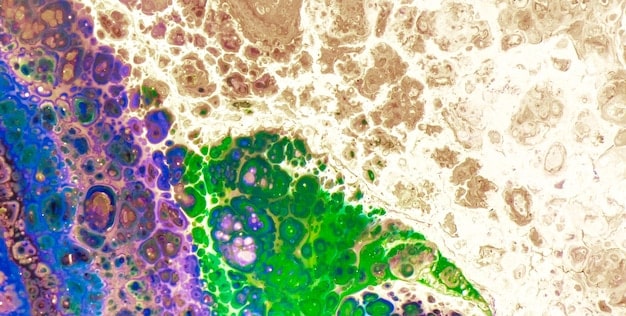Unlocking Cellular Renewal: Proven Benefits of Intermittent Fasting on Autophagy

Intermittent fasting promotes cellular autophagy, a process where the body cleans out damaged cells to regenerate newer, healthier ones, potentially leading to benefits like improved metabolic health, longevity, and disease resistance.
Discover the remarkable connection between intermittent fasting and cellular autophagy, a natural process vital for health, longevity, and resilience against disease. Wondering what are the proven benefits of intermittent fasting on cellular autophagy? This article explores the science-backed advantages, revealing how this dietary approach can rejuvenate your body from the inside out.
Intermittent Fasting and Autophagy: A Powerful Synergy
Intermittent fasting (IF) is more than just a diet; it’s a strategic eating pattern that cycles between periods of eating and voluntary fasting on a regular schedule. Autophagy, often called the body’s “cellular cleanup” process, is how cells remove dysfunctional components. But how do these connect?
By understanding the interplay between IF and autophagy, we can unlock significant health benefits. This involves not only weight management but also improved cellular health and resilience.
The Basics of Intermittent Fasting
Intermittent fasting comes in several forms, each with its own rhythm. Understanding the different methods can help you choose the best fit for your lifestyle and health goals.
- 16/8 Method: This involves fasting for 16 hours each day and restricting your eating window to 8 hours.
- 5:2 Diet: With this approach, you eat normally for five days of the week and restrict your calorie intake to 500-600 calories on the other two days.
- Eat-Stop-Eat: This involves a 24-hour fast once or twice a week.

What is Autophagy and Why Does it Matter?
Autophagy is the body’s natural way of cleaning out damaged cells in order to regenerate newer, healthier cells. It is a critical process for maintaining cellular health and overall well-being. It helps eliminate misfolded proteins, damaged organelles, and intracellular pathogens, preventing their accumulation and promoting cellular repair.
The process is heavily involved in longevity and age-related diseases. Promoting autophagy can help the body function more efficiently and stay healthy.
How Intermittent Fasting Triggers Autophagy
Intermittent fasting can act as a potent trigger for autophagy. This is because during periods of fasting, the body experiences a reduction in nutrient availability. But why does this trigger such a beneficial cellular process?
When nutrient supply decreases, cells respond by ramping up their cleaning and recycling efforts. This helps them survive the period of scarcity and prepare for future demands.
Nutrient Deprivation and Cellular Response
When you fast, your body’s glucose levels drop, signaling cells to find alternative energy sources. This metabolic shift is instrumental in initiating autophagy.
Reduced insulin levels combined with increased glucagon levels create the perfect environment for cellular cleanup. The body begins to break down stored fats and proteins, and in the process, clears out damaged components.
Key Signaling Pathways
Several key signaling pathways are activated during intermittent fasting that lead to enhanced autophagy. These pathways serve as communication channels within the cell, directing its activities.
- mTOR Inhibition: The mechanistic target of rapamycin (mTOR) pathway is a central regulator of cell growth and metabolism. Fasting inhibits mTOR, which in turn activates autophagy.
- AMPK Activation: Adenosine monophosphate-activated protein kinase (AMPK) is a key energy sensor in the cell. Fasting activates AMPK, further promoting autophagy.
- FoxO Transcription Factors: These transcription factors regulate the expression of autophagy-related genes.
By understanding these complex mechanisms, we can appreciate how intermittent fasting promotes cellular health at the most basic level.

Proven Benefits of Enhanced Cellular Autophagy
The boost in autophagy triggered by intermittent fasting can lead to many health benefits. It can have a profound impact on overall body function and reducing disease risk. What exactly can autophagy do for you?
From metabolic improvements to neuroprotection, the benefits of autophagy are far-reaching and supported by considerable research.
Metabolic Health Improvements
Enhanced autophagy plays a significant role in improving metabolic health. It helps regulate blood sugar levels and improves insulin sensitivity.
By clearing out damaged mitochondria—the powerhouses of cells—autophagy ensures that energy production processes are efficient. This helps maintain a healthy metabolism and reduces risk of metabolic disorders.
Neuroprotective Effects
Autophagy aids in the clearance of protein aggregates and damaged organelles in brain cells. This cleans the brain and leads to protective effects.
- Prevention of Neurodegenerative Diseases: Clearing out toxic proteins helps prevent diseases like Alzheimer’s.
- Improved Cognitive Function: Healthy neurons contribute to better cognitive performance and mental clarity.
- Enhanced Brain Plasticity: Autophagy facilitates synaptic pruning, which is essential for learning and memory.
Longevity and Anti-Aging
Autophagy is closely linked to increased lifespan across various species. It can help you live longer.
Regular elimination of dysfunctional cellular components prevents cellular senescence, a state where cells stop dividing and contribute to aging and disease. By keeping cells young, autophagy promotes resilience and vitality for years to come.
Incorporating Intermittent Fasting Safely
Before starting on intermittent fasting, it’s important to do it safely. While intermittent fasting has many potential benefits, it’s not suitable for everyone. How do you safely integrate intermittent fasting into your lifestyle?
You can achieve the benefits of IF while minimizing the risks, by carefully considering your health status, lifestyle, and dietary habits.
Consulting Healthcare Professionals
If you have underlying health conditions or concerns, you should talk to a healthcare provider before trying intermittent fasting. This is crucial to make sure it’s safe for you.
A healthcare professional can assess your health status and provide personalized recommendations. This ensures that intermittent fasting aligns with your individual needs and doesn’t exacerbate any existing issues.
Gradual Implementation
Instead of jumping into a strict fasting protocol abruptly, gradually introduce intermittent fasting into your daily routine. This phased approach allows your body to adapt, reducing the risk of adverse effects.
- Start with Shorter Fasting Windows: If you are new to intermittent fasting, begin with 12-hour fasting windows.
- Adjust According to Comfort: When you feel comfortable with this routine, extend the fasting window gradually.
- Stay Hydrated: Remember to drink plenty of water during fasting periods.
Listening to Your Body
Paying attention to your body’s signals is vital. Listen and do not ignore feelings of excessive hunger, fatigue, or discomfort. Adjust your fasting schedule as needed.
If you experience persistent adverse effects, you should consider modifying your approach or seeking further medical advice. Staying attuned to your body ensures a safe and sustainable intermittent fasting experience.
Foods that Enhance the Autophagy Process
You can enhance autophagy alongside intermittent fasting by consuming foods that boost the process. But what specific foods can further promote cellular cleanup?
Certain compounds found in various foods have been shown to ramp up autophagy. You can synergistically boost your cellular health by including these nutritional allies in your diet.
Polyphenol-Rich Foods
Polyphenols, found in many plant-based foods, are known for their antioxidant and autophagy-boosting properties. They help the body’s internal cleaning process.
- Berries: Blueberries
- Green Tea: Supports autophagy and provides potent antioxidant effects.
- Dark Chocolate: Contains flavanols that promote cellular health.
Other Autophagy-Boosting Nutrients
Outside of polyphenols, here are other beneficial components that can help with cleaning and autophagy.
These include spermidine, found in aged cheese and wheat germ, and ginger.
Future Research and Potential Applications
The study of autophagy is an evolving field with many potential research opportunities. What future directions and uses might the scientific community uncover?
As understanding grows, autophagy modulation could play an increasingly important role in preventative medicine and therapeutic strategies.
Clinical Trials and Disease Treatment
Clinical trials are underway to explore the potential of autophagy modulation in disease treatment.
Autophagy is being studied as a therapy for cancer and neurodegenerative disorders. The clinical trials are also looking into metabolic diseases and infectious diseases. Future studies may open up even more treatment options.
Personalized Nutrition and Autophagy
As research continues, personalized diets and timing strategies could be used to optimize autophagy. These could be custom-tailored to individual genetic and metabolic profiles.
Future advances could lead to customized plans that help boost cellular health and resilience. The plan may include recommendations geared toward genetic preferences and personal metabolism.
| Key Point | Brief Description |
|---|---|
| 🔑 IF & Autophagy | IF triggers autophagy, the body’s cellular cleanup system. |
| 🧠 Neuroprotection | Autophagy clears brain toxins, guarding against decline. |
| ⚡ Metabolic Boost | Improves sugar handling, energy and reduces disorder risks. |
| 🛡️ Disease Resistance | Enhanced cell cleaning boosts overall health and disease defense. |
Frequently Asked Questions (FAQ)
▼
There isn’t one “best” method, as it varies by individual. Longer fasting periods, like the 24-hour method, may more strongly induce autophagy, but the 16/8 method is also effective and easier to maintain.
▼
Autophagy can start within 24 hours of fasting, but optimal levels may take longer. Consistency is key for promoting sustained autophagy through intermittent fasting.
▼
Yes, exercise can complement intermittent fasting in promoting autophagy. Both endurance and resistance training can activate pathways that stimulate cellular cleanup and renewal.
▼
Some risks include nutrient deficiencies if not properly planned, and it’s not suitable for everyone. Those with eating disorders or certain medical conditions should avoid it.
▼
Yes, certain supplements like curcumin, resveratrol, and spermidine may enhance autophagy when combined with intermittent fasting. Consult a healthcare provider before starting any supplementation.
Conclusion
Intermittent fasting presents a promising way to boost cellular autophagy, unlocking a range of potential health benefits from metabolic improvements to neuroprotection and increased longevity. By understanding the science behind this synergy and incorporating intermittent fasting safely, you can harness the power of cellular renewal for a healthier, more resilient you.





